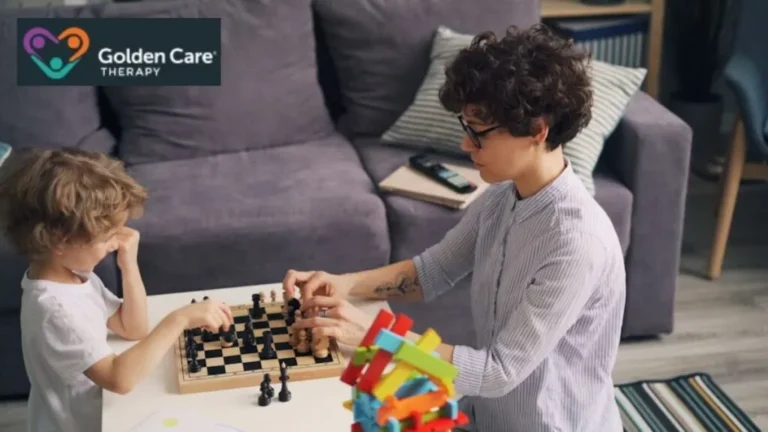Golden Care Blog
Welcome to the Golden Care Therapy Blog—your go-to source for evidence-based insights and practical tips on autism and ABA therapy. Explore the latest research, hands-on strategies, and expert guidance designed to help your child thrive at home, in school, and beyond.

Autism and Attachment: Understanding the Impact
How does autism affect attachment? It’s a question many parents, professionals, and even autistic individuals themselves

Benefits of Weighted Blankets for Autism: Anxiety & Sleep
Autism Spectrum Disorder (ASD) affects how a person communicates, interacts, and processes sensory input. Many

Autism and Communication: Helping Kids Find Their Voice
Every parent dreams of hearing their child’s first words. For families of children with autism,

Signs of Autism Regression: What Parents Should Look Out For
Has your child suddenly stopped saying words they once loved? Maybe they once waved “bye-bye”

Autism Behavioral Therapy: How ABA Helps Shape Skills for Daily Life
Autism behavioral therapy is reshaping how children with autism gain essential skills for daily life. Using

Is Autism Hereditary? Understanding the Role of Genetics and Environment
Is autism hereditary? Parents, doctors, and researchers have been asking this for years. Autism spectrum

Is ADHD a Form of Autism? Key Differences and Similarities Explained
Parents, teachers, and even doctors often wonder: is ADHD a form of autism? On the surface,

What Is Natural Environment Teaching (NET) in ABA?
You’re not the only one who has ever wondered how to make studying less stressful.

How to Recognize Early Signs of Autism in Children
Imagine observing your child as they walk around the home. They can be pointing at
Get in Touch Today
If you’re looking for compassionate ABA therapy and a team that truly cares, we’re here for you. Let’s walk this journey together, one small success at a time.
We’re ready when you are.
